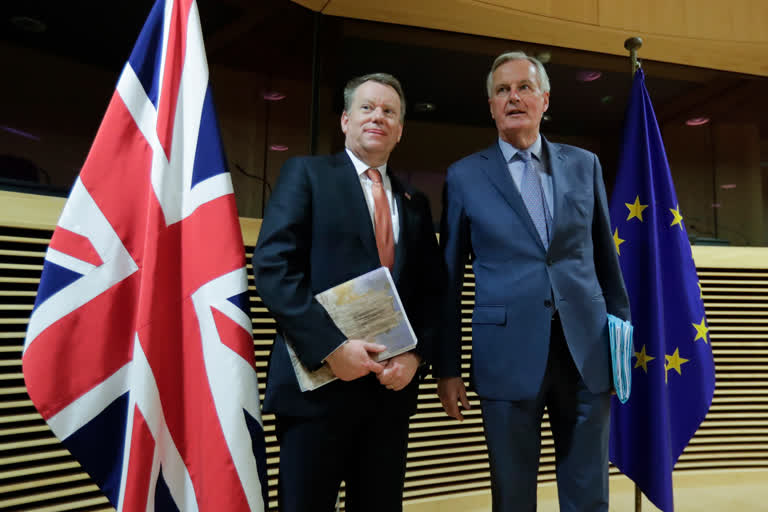Brussels: The European Union (EU) and the UK ended the first round of negotiations here but with big divergences as they try to forge a new relationship following the UK's departure from the now 27-nation bloc.
"Our differences come as no surprise, especially after only one round of negotiations, but some are very difficult," Xinhua news agency quoted EU chief Brexit negotiator Michel Barnier as saying following the talks on Thursday.
Barnier said the two sides had disagreements mainly in four areas: a "level playing field" for competition, security cooperation, governance of the future relationship and fishing.
He emphasised that not going back on the commitments and mutual respect were two possible keys for success. "An agreement with the UK will be difficult, but possible. A lot more work needs to be done," Barnier said later on Twitter.
Read:Will not trade away sovereignty, says UK ahead of EU trade talks
Britain’s negotiating mandate insists that “we will not agree to any obligations for our laws to be aligned with the EU’s or for the EU’s institutions, including the Court of Justice, to have any jurisdiction in the UK.”
"It was a constructive first round and we now understand each other well. These will be tough talks but we will work hard to try to reach agreement," David Frost, the UK's chief negotiator said on Twitter.
With around 100 British officials participating headed by the UK's David Frost, the first round of negotiations reportedly covered 11 areas including trade in goods and services, energy and transport, according to the agenda on the UK government's website. The next round of talks will start on March 18 in London.
The UK officially left the EU on January 31, but is continuing to abide by many of the bloc's rules while talks on a permanent trading relationship take place.
Prime Minister Boris Johnson has pledged to get a deal with the EU by the end of the transition period - December 31, 2020 - and has said he was not prepared to extend that deadline.
(With inputs from agencies)
